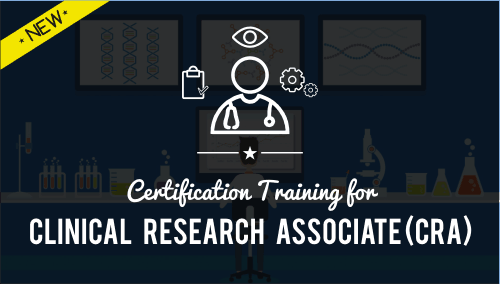
SCRP- Certified Clinical Research Associate
What does a Clinical Research Associate do?
As a SCRP- Clinical Research Associate (CRA) in clinical operations you are responsible for setting up, coordinating and supervising clinical studies. You plan, prepare and help carry out clinical trials to test new or existing investigational products. This assesses their safety and benefits of use. The work is usually done within pharmaceutical companies or CROs who conduct clinical research on behalf of pharmaceutical companies. Studies are also required within hospital departments that collect information about investigational products.
You are the primary contact for various parties including doctors, researchers, laboratories, pharmacists, ethics committees and others such as the sponsor (usually a pharmaceutical company) or client. In summary, as a CRA you are responsible for ensuring that all the risks and effects of investigational products have been fully examined and approved, prior to their release on the market.
 What responsibilities can you expect as a Clinical Research Associate?
What responsibilities can you expect as a Clinical Research Associate?
The CRA position is diverse and dynamic. Specific duties can vary depending on the company and you may work on multiple projects. A CRA will generally be required to:
- carry out selection, initiation, monitoring and close-out visits at the participating clinical trial centres, also for logistics and coordination of the study;
- monitor the study to check whether it has been carried out in accordance with applicable laws and regulations;
- develop study procedures, methodology and instructions for clinical trials staff, as well as design data collection tools (case report forms);
- manage study supplies, medication supplies and medication accountability;
- collect, verify and finalize collected data to create reports and present results of findings to other medical staff;
- ensure the safety and well-being of test subjects by liaising with ethics committees;
- submission of clinical trial documents for review and approval by those ethics committees.
Some travel may be required, depending on the terms of the job.


Some of the CRA qualifications and skills must be relevant to the pharma industry. For example, a Clinical Research Associate needs to have a degree in a Life Science*. In summary, you need to have these qualifications, knowledge and personal attributes:
- completed bachelor or masters degree, or a PhD in a Life Science;
- driver’s licence;
- excellent computer skills;
- excellent communication and organisational skills;
- flexible, accurate working and a high level of integrity;
- knowledge of good clinical practice (GCP) with relevant training is an advantage (and conditional on the job itself).
*Relevant subjects include biology, microbiology, medicine, pharmacology, pharmacy, molecular biology, toxicology and immunology.
If you have done some work within a hospital, pharmaceutical company or CRO that would be a bonus.
You should also have knowledge of international guidelines as well as good distribution and manufacturing practice. Employers may expect you to have an understanding of how clinical study management works. This includes monitoring, study investigational product handling and data management. You should also be familiar with the area of medicine or science where you are applying, such as oncology or haematology.
CRA jobs in the Netherlands usually offer a startsalary ranging from € 35.000,- to € 42.000,- a year. This all depends on location and the type of company. After a few years of experience, Senior Clinical Research Associates can earn upwards of € 50.000,- which can eventually rise to € 75.000,- and a lease car may also be offered. There may also be Contract Clinical Research jobs available, with different terms and salaries.



Leave a Reply
You must be logged in to post a comment.